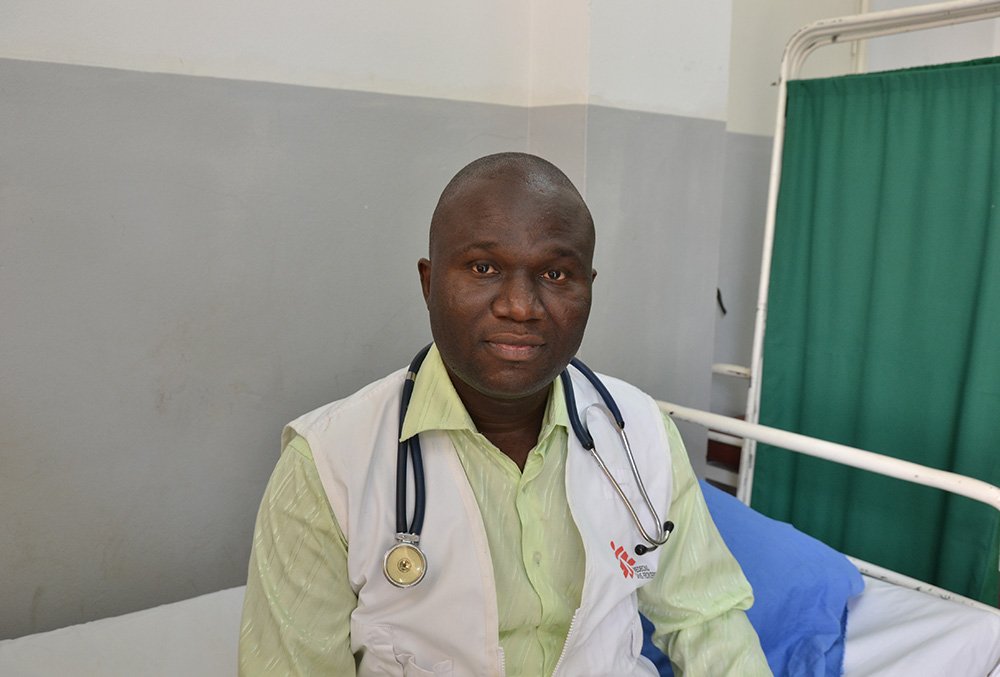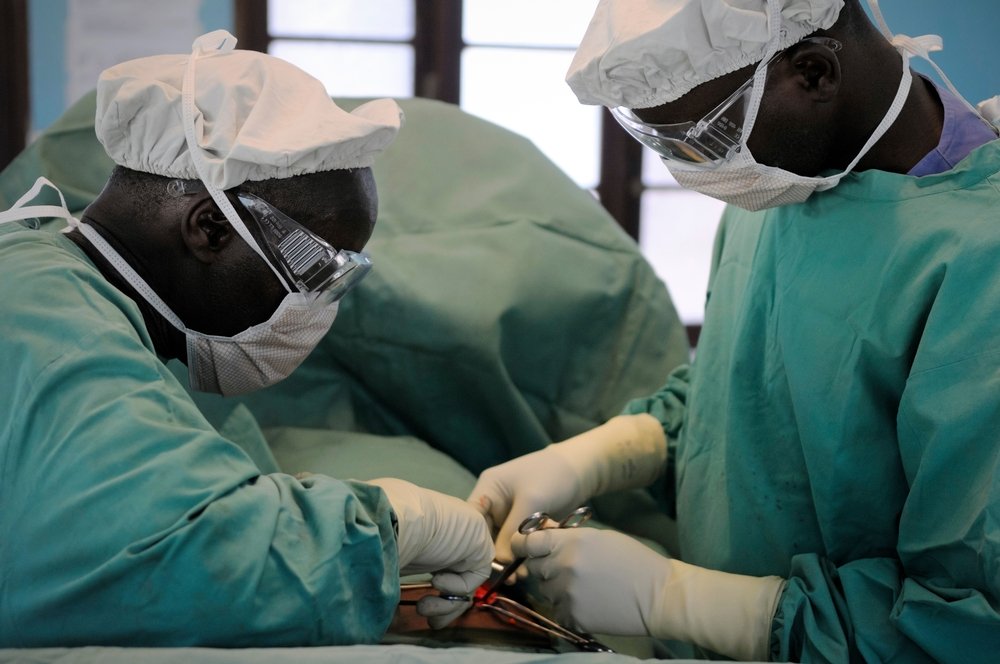Chéride Kasonga has just returned from Pibor, one of the neediest regions of perpetually conflict-prone South Sudan.
From March to September 2016, the Congolese doctor worked at a referral health centre supported by Doctors Without Borders (MSF). For him, going on a mission with the organization is a way of fulfilling his ideal of quality medicine for everyone.
"In my country, I came up against the reality of an unsubsidized health system that requires that patients themselves pay the cost of their health care. So it was difficult for us to provide care to those who did not have financial resources and thereby to respect the Hippocratic Oath that requires every doctor to make the health of their patients their priority."
"That is why I chose to work with MSF in order to be able to freely and with a clear conscience practice the medicine that I learned."

Since 2007, wearing a vest with the MSF's logo, Chéride has worked in the Karibu project in Kisangani and in Niangara project in the Democratic Republic of Congo (DRC). He then left to work for the organization as an expatriate. He spent time in Mali, Mauritania, the Central African Republic and, most recently, in South Sudan on a six-month assignment.
"I worked for eight years in my country. I have friends who stayed there, who are with their families and earn more money than I do. But working outside DRC allowed me to gain many valuable experiences.
As a doctor, it is important to know your patient, their way of living, their dietary preferences and their beliefs in order to treat them adequately. This ability that I gained, among others, made me more human in practicing my profession. In addition, working in places where people really need your help is very important to me, even if it can sometimes involve risks."
Chéride Kasonga was the only doctor at MSF referral centre in Pibor. This MSF project targets a population of some 170,000 people who have no other access to health care in the county. Between April and July 2016, the centre held 19,488 outpatient consultations and more than 230 inpatient consultations.
The Congolese doctor's work days, which involved supervising activities, administrative tasks, the clinical care of patients and the training of staff, were always a bit of a marathon, but providing free services to a population that has no access to medical care was gratifying to him.
"We sometimes experience great difficulty in reaching some health posts: in the rainy season, the roads are impassable, and the water in the rivers is sometimes not deep enough for a dugout to navigate on. In that situation, these health posts cannot refer seriously ill patients to Pibor.
But when you arrive to provide care and restore an appetite for life, the smiles of the patients or their relatives do you a world of good", the doctor says.

As in his own country and almost everywhere he has been with MSF, his work is always done in a rather unstable security context. But even in a cold sweat, "my enthusiasm for humanitarian work has never been extinguished," he says.
Beyond the humanitarian concerns caused by insecurity, another problem, more medical in nature, bothered him: the habits of using traditional medicine in which Chéride has no confidence.
"That resulted in many people coming to us in a very degraded state of health because they had for a long time put themselves in the hands of unqualified practioners or had taken substances for a long time whose toxicity they were unaware of, whereas we were providing quality care free of charge," Chéride said regretfully.
Malaria, diarrheal and respiratory infections are recurrent conditions in the referral centre in Pibor. But other cases made an impression on Chéride Kasonga, such as injuries caused by knives or bullets which sometimes result from conflicts between generations.
"Once, a young man of 25 was brought to us in a state of mental confusion and with multiple deep wounds, on the head, the back, the arms and the legs."
"He had been hit with a machete by members of the family of a girl with whom he was going out. He had lost consciousness for about 24 hours before waking up and remaining confused for several days. We admitted him and treated him.
"We were very pleased to see him leave the hospital having recovered his physical and mental capacities after 45 days of hospitalization."
Now back in his native Congo, Chéride Kasonga says he is enjoying being with his family. But he knows well that another part of him enjoys responding to patients' needs. And, he tells us, he is waiting with barely concealed impatience to go somewhere else on behalf of MSF. His mission: to save lives, at whatever cost!
Find out more about MSF's work in South Sudan.